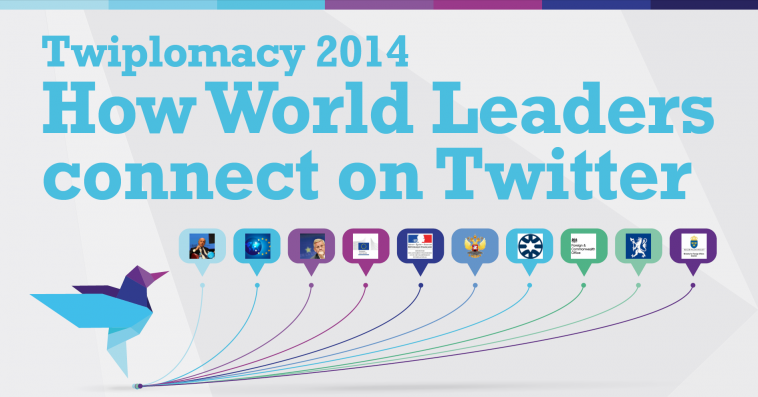
"Twiplomacy" - two thirds of world leaders on Twitter
The first global study about world leaders on Twitter. "Twiplomacy" is the first research of its kind, aimed at identifying to what extent world leaders use Twitter.
Burson-Marsteller analyzed 264 government accounts in 125 countries. The study shows that almost two-thirds of world leaders have a Twitter account. However, whilst the social network offers direct interaction between users, almost half of world leader accounts don’t follow any of their peers.
Twitter is most popular in North and South America with 80% of governments active. Barack Obama is the most followed world leader with 17,115,077 followers, globally in 5th place just behind Britney Spears. Venezuelan president Hugo Chávez is in second place with 3,152,608 followers, followed by the White House, Queen Rania of Jordan and 10 Downing Street who all have over two million followers.
Some of the key findings are:
1) Out of the 264 accounts of heads of state and government, 90 have never ever sent a retweet and 99 have never sent an @reply US
2) President Barack Obama was the first world leader to sign up to Twitter on 5 March 2007 followed the same month by @EPN, the account now used by Mexico’s President-elect Enrique Peña Nieto.
3) Most popular tweet: "Same-sex couples should be able to get married." - President Obama, retweeted 62,047 times on 9 May 2012
4) World leaders tweet in 43 different languages. English is used by 34% followed by Spanish (15%). However Spanish and Latin American leaders tweet three times as much as their English counterparts
“This study illustrates how Twitter is closing the communication gap between us and our world leaders. On the one hand it allows heads of state and government to broadcast their daily activities and government news to an ever growing audience. On the other hand it allows citizens direct access to their leaders. Consequently, it is now, more than ever, critical for these leaders to get it right on the social network”- said Jeremy Galbraith, CEO of Burson-Marsteller Europe, Middle East and Africa.
More information on the study can be found here.
